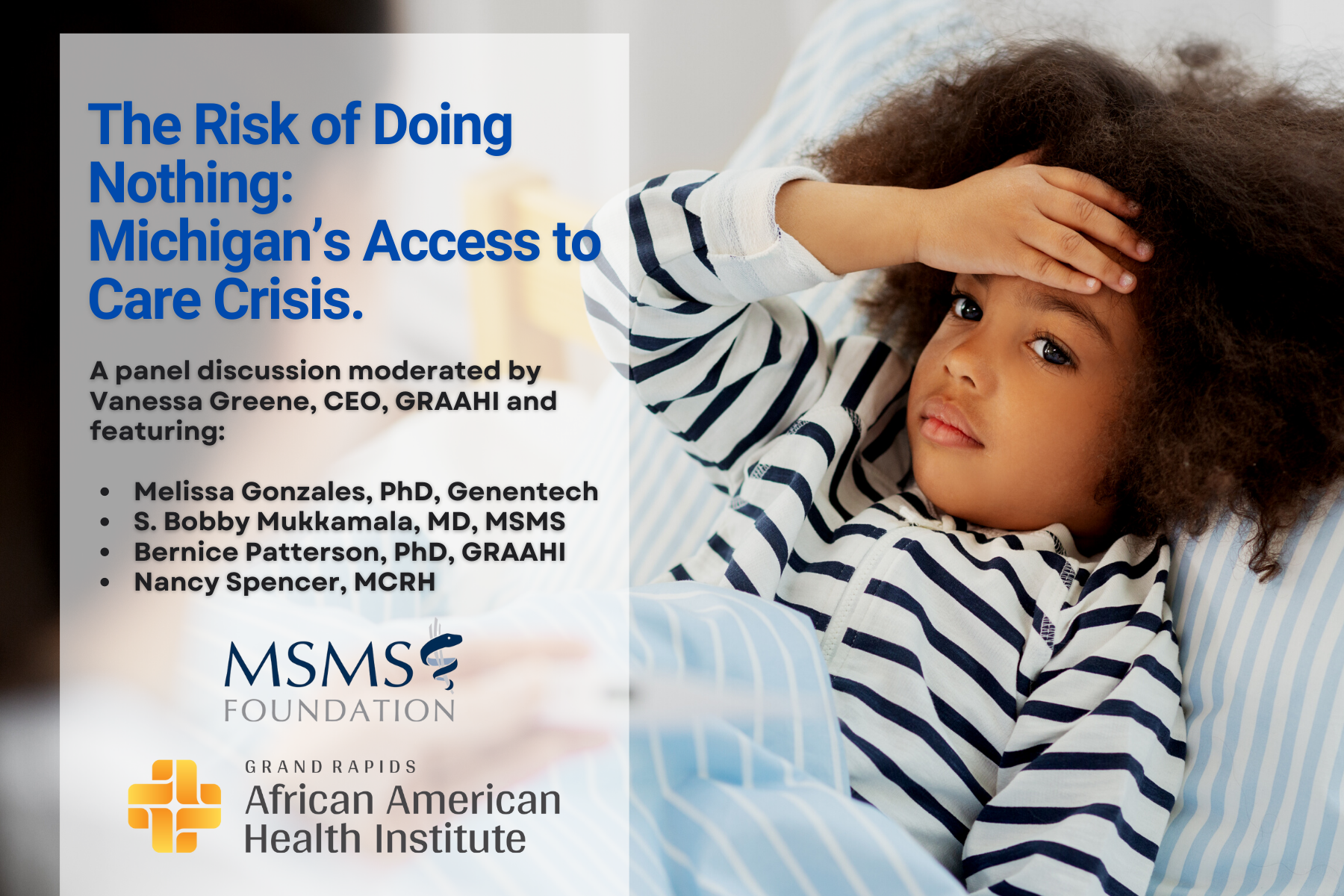July 15, 2021
The Michigan State Medical Society (MSMS) was honored to host a panel discussion for the Michigan Legislature focused on improving access to quality care for all patients this past Tuesday. Along with the Grand Rapids African American Health Institute (GRAAHI), the Michigan Center for Rural Health (MCRH), and Genentech, MSMS invited Michigan legislators and their staffs to join “The Risk of Doing Nothing: Michigan’s Access to Care Crisis.”
The goal of the panel discussion was to raise awareness about access barriers to consistent, coordinated, and integrated health care and the resulting impact on health disparities. Panelists touched on several topics including the needs of diverse communities, challenges in rural Michigan, lack of behavioral health resources, impact on the state’s economic health, and diversity gaps in medical research. A key theme throughout the discussion was the need to work together to find solutions. MSMS President Pino D. Colone, MD, issued the following statement:
“The COVID-19 pandemic’s impact has been widespread, and one of the realities it has highlighted is the need to better understand, and subsequently address, the numerous barriers to health access that persist for far too many patients across the state. The simple—and alarming—fact is, Michigan’s most vulnerable patients and communities lack fair and equitable access to the very best in quality care. It’s a problem MSMS and our member physicians are committed to solving and today’s panel discussion with Michigan’s lawmakers and policy leaders was a first step towards that goal.”
The panel was moderated by Vanessa Greene, CEO, GRAAHI, and panelists represented each of the above-named organizations:
- Melissa Gonzales, PhD, Genentech
- S. Bobby Mukkamala, MD, MSMS
- Bernice Patterson, PhD, GRAAHI
- Nancy Spencer, MCRH
The full presentation can be viewed, here.


